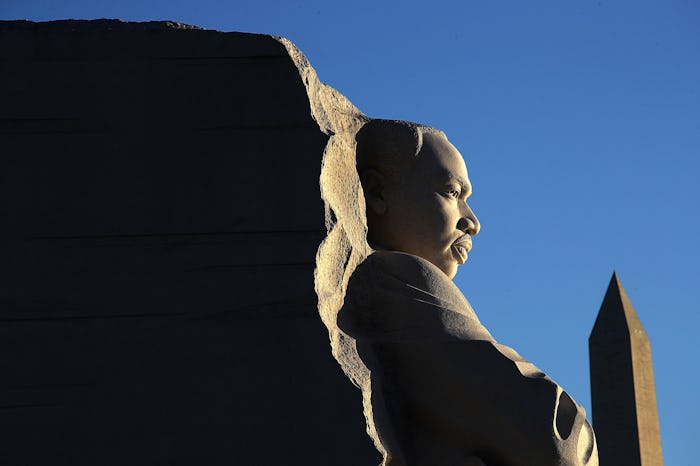News

This School Banned Talk Of "White Privilege," & Here Is Why That's A Problem
The phrase "white privilege" is a relatively new one being used in every day vernacular, but the concept is as old as time. The idea that some people are born into a world where they have advantages based on the color of their skin isn't just a concept, actually, it's a bona fide reality. It's something parents need to explain to their kids, especially white parents. And yet this school banned talk of "white privilege" on Martin Luther King Jr. Day because parents in the predominantly white suburban community were uncomfortable with the phrase. Which is pretty much the definition of white privilege, isn't it?
So here's how it all started; on Martin Luther King Jr. Day, a school principle named Joseph Moylan in the Oconomowoc Area School District in Wisconsin made the decision to call an assembly. He wanted to talk to the students about racial divides, and particularly about the issue of white privilege. And parents apparently weren't really into it. In fact, according to The Lily some parents were so incensed that they called for Moylan's dismissal. Why? According to Oconomowoc school president Donald Weimer, it seems talking about white privilege wasn't really something parents felt their kids needed to hear. He told The Journal-Sentinel: "Our board is fine with discussions about diversity ... but white privilege is a lightning rod for some parents."
Oconomowoc Superintendent Roger Rindo also told the news outlet that shortly after the Jan. 15 assembly he was directed by board members to ban future activities that included the topic of white privilege, unless it was in a classroom that was teaching a specific course about the subject. In other words, unless you're choosing to take White Privilege 101 or something, you really don't have to hear about it. In fact, you won't be allowed to discuss it without losing your job... Moylan was reportedly dismissed after the assembly. As Rindo explained to the Journal-Sentinel:
Schools are a microcosm of their communities. And we had parents in our community who felt like the concept of privilege went a little far, particularly for some of our younger students. It doesn't mean we can't teach children about diversity with the other 900 ways we can approach it.
So let's unpack Rindo's statement, shall we? It's ok to discuss diversity in this predominantly white community as long as no one brings up one of the fundamental stumbling blocks to helping achieve true diversity in any way, white privilege. So they're invoking white privilege as a way to avoid discussing, you guessed it, white privilege. Huh.
It's a sad thing to realize, that parents in this school district seem to be trying to shield their children from an important lesson about diversity and ways to incorporate inclusion into their daily lives, both now and in the future. Fortunately, some parents living in the school district don't appear to agree with the decision to ban discussions of white privilege. A petition was started by local parent Amanda Hart to "keep diversity education and programming in Oconomowoc schools." To date, she's received more than 2,200 signatures and comments of support from people in the community like this one from former student Brianne Zimmer:
I am signing this petition because I believe empathy is an important lesson to be taught in schools. We live in a society where it is important for students to be aware of the priveleges they have based on their race in order to move towards equality. This assembly and assignments were not to shame students, but to provide awareness.
Change is hard, and it's even harder if you feel as though the color of your skin is on the "wrong" side of that change. But taking a long look in that mirror, acknowledging that yes, white privilege is a problem is the first step. The next is making the decision that it ends with this generation. Diversity is better for everyone. Even if it makes people "uncomfortable."